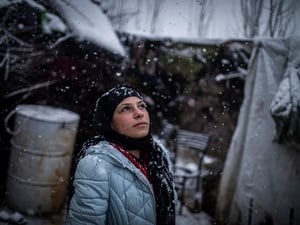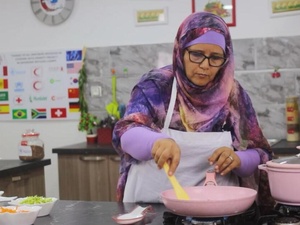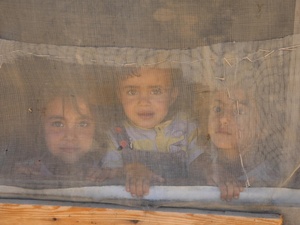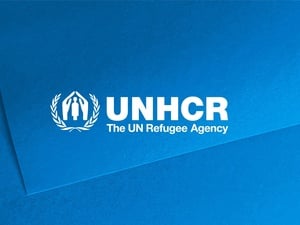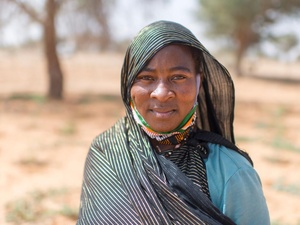UNHCR and humanitarian agencies strengthen health response in Kenya refugee camps
UNHCR and humanitarian agencies strengthen health response in Kenya refugee camps

Aerial view of the Dadaab refugee complex in northern Kenya.
Nairobi/Geneva – UNHCR, the UN Refugee Agency, humanitarian agencies and the Government of Kenya are strengthening their COVID-19 response, after it was confirmed by the Government that two individuals have tested positive for COVID-19 in the Dadaab refugee camps.
In line with the Government of Kenya’s directives, the two individuals were placed in quarantine and then moved to isolation centres after positive results were received. The Ministry of Health’s Disease Surveillance and Response team has initiated contact tracing.
The crowded conditions in the Dadaab refugee camps, where health services are already under pressure, raise serious concerns about the vulnerability of over 217,000 refugees and 320,000 host communities living in the camp and its surrounding areas.
UNHCR, partners and other UN sister agencies have been supporting the Government-led countrywide response plan to mitigate risks and prevent further spread of the virus in the refugee camps.
In Dadaab, health facilities have been enhanced, with the construction of isolation and quarantine centres providing beds for an additional 955 people. An additional 125 hand-washing stations have been installed at food distribution sites, schools and markets.
Health centres have been provided with 68 personal protective equipment (PPE) for frontline staff, 450 pairs of gloves, 45,000 surgical masks and four oxygen concentrators. Refugee-led groups have produced more than 150,000 cloth masks which will be ready for distribution in the coming days. All health workers have been trained on COVID-19 prevention and response. There are currently 18 medical doctors, 150 nurses, 52 clinicians, 11 lab technicians and 336 community health volunteers working in the Dadaab refugee camps.
Hygiene awareness campaigns on COVID-19 prevention have reached more than 200,000 refugees, including through local radio, posters, leaflets, WhatsApp messages, social media and dedicated websites in Somali, Oromo, Dinka, Swahili, Nuer, French and English.
UNHCR, World Food Programme (WFP) and partners have provided double rations of food and hygiene products such as soap and jerrycans, to minimise the need for large gatherings and queues.
Refugee community leaders and outreach workers have received training and are regularly sharing key messages with the refugee population in the camp. UNHCR and partners have also enhanced psycho-social support structures and strengthened existing dedicated helplines to ensure that refugees and asylum-seekers have access to information and guidance on available assistance.
UNHCR’s Global COVID-19 Response Appeal has so far received 31 per cent of the US$745 million needed to assist refugees impacted by COVID-19. UNHCR is calling on the international community to continue and step up its support in order to ensure that vulnerable refugees, asylum-seekers and host communities in Kenya have access to adequate health services and care.
For more information on this topic, please contact:
- Eujin Byun,[email protected], +254 798 487 988
- Dana Hughes,[email protected],+254 733 440 536
- Rose Ogola,[email protected], +254 729 578 809


